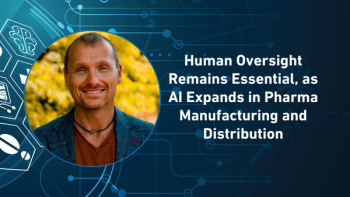
- Pharmaceutical Commerce - April 2010
New United BioSource partnership steps up expertise across Asia-Pacific markets
Singapore-based Clearstate will help UBC clients navigate complex reimbursements policies
Asia opens up a whole new world of opportunity for biopharmaceutical companies, but fundamental differences in healthcare systems and reimbursement policies make it difficult to access the region’s highly developed markets, as well as emerging ones, says Adam Barak, head of International Pricing and Reimbursement for United BioSource Corp. (Bethesda, MD).
With that in mind, UBC, which helps biopharma companies commercialize their products, launched a strategic partnership with Singapore-based market intelligence firm Clearstate to help support companies that want to start doing business in the region.
Barak says there’s no single way to classify how Asia-Pacific-style pricing and reimbursement strategies differ from those in the US. In some cases, there are no reimbursement strategies. “For the developing nations, there is a serious lack of funds to sustain universal healthcare coverage, thus most healthcare spend is made out of pocket at patient’s cost or is partially subsidized by a combination of public and private insurance programs,” Barak says. Where there are reimbursement policies in place, such as in Japan, South Korea, Taiwan, Australia and China, governments are grappling with how to control pharmaceutical expenditures, leading to constant changes in the landscape. “Each of these nations has employed different measures to contain costs,” Barak says.
He also says it’s important for companies to not assume that a global strategy can be easily applied across all Asia-Pacific countries. “Japan and China have the most complex pricing and reimbursement policies in the region and stringent regulatory controls that mean it will take a new drug 2—3 years to access the market,” Barak says. “On the other hand, Australia, South Korea and Singapore have clear guidelines and simplistic processes that allow for relatively fast market access.
“It is these fundamental differences that make it difficult for many international companies to access such markets without the support of local distributors, or market access experts such as Clearstate,” Barak says.
Articles in this issue
almost 16 years ago
New ethics code draws clear line between physicians and drug companiesalmost 16 years ago
PBMs contact Congress over proposed USPS five-day delivery schedulealmost 16 years ago
FDA puts a spotlight on cargo theft of life sciences productsalmost 16 years ago
New study sets benchmark for post-marketing surveillance processalmost 16 years ago
Comparative effectiveness research gets boost with healthcare overhaul lawalmost 16 years ago
Global pharma growth will be 5-8% annually through 2014, predicts IMS Healthalmost 16 years ago
Diplomat Specialty Pharmacy poised for growth in MichiganNewsletter
Stay ahead in the life sciences industry with Pharmaceutical Commerce, the latest news, trends, and strategies in drug distribution, commercialization, and market access.




